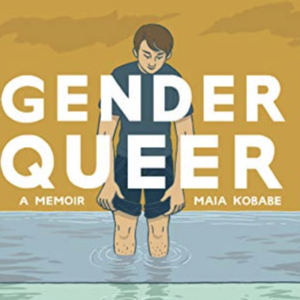This year in the legislature, there are a couple of bills aimed at addressing the growing concerns of parents regarding inappropriate material being provided to students in classrooms and school libraries.
SB523-FN is one of those bills, and it aims to accomplish two main goals: 1) ensure that no school, school district, or person who contracts with a school provides sexually explicit materials to students, and 2) require each school board to adopt a complaint resolution policy for parents who have concerns about inappropriate material.
In testimony to the Senate Education Committee, the bill’s prime sponsor, Sen. Kevin Avard (R- District 12), referenced a 2014 incident in Gilford, N.H., in which a father of a 14-year-old was arrested at a school board meeting when he spoke out against the sexually graphic material his daughter was required to read for a school assignment. That material was given to his daughter without any parental consent or knowledge. The father was arrested after going over his allotted 120 seconds of allowable discussion time, but the case was later dismissed in court.
Across the U.S. and in New Hampshire, many parents have complained to their local schools and school boards that their children are being given access to sexually explicit materials. As a matter of fact, there is a whole genre of graphic novels that are being marketed to LGBTQ+ youth which push this limit even further, to the point where many of them would violate NH RSA 649-A, Child Sexual Abuse because they contain images of minors engaged in sexual acts. The only reason (and it is a narrow interpretation) that they do not violate the statute is because they contained cartoon drawings of minors engaged in sexual acts and not actual photographs of children.
“There are materials out there that I could not show you in this committee…there are parents that are outraged….and they don’t feel as if they are getting any satisfaction with their school boards,” stated Sen. Avard.
Although the Gilford incident resulted in the school board adopting policies for parental notification of controversial material, there are many school districts across New Hampshire where parents feel their concerns are not being addressed. In some schools, there is often a process for parents to register a complaint about questionable material, but the complaints often go nowhere because the same people who are tasked with reviewing the questionable material are often the same people who approved it in the first place.
In addition, if a parent goes to a school board meeting with their concerns about sexually explicit material in the classroom, they are often met with criticism of being a “book banner,” which is a way to shut down the conversation without really ever getting to the real question: Why exactly is there sexually explicit material being offered to any student of any age?
Even more concerning, some of this material is expressly written for the LGBTQ+ student community as a way to provide a diversity of reading options. LGBTQ+ students are already vulnerable in many ways, including increased instances of depression and mental illness, suicidal ideation, and drug use. Why exactly is any material being written for this community that contains depictions of children engaged in sexual acts, with some that even involve adults? Why are these students being singled out and targeted?
On March 15, 2023, NHJournal reporter Damien Fisher penned an article about how New Hampshire middle schoolers have “free access to books containing pornographic images of sex acts through their school libraries and through school-hosted library apps.”
Last year, Louisiana’s attorney general crafted a report called “Protecting Innocence,” which specifically highlighted some of the sexually explicit material being offered in that state’s schools and libraries. I would encourage all parents to read this report, https://www.agjefflandry.com/ProtectingInnocence, as many of the books discussed can be found in plenty of New Hampshire’s learning institutions and local libraries.
Parents deserve assurances that their children’s classrooms and school libraries do not contain sexually explicit material. Furthermore, taxpayers deserve to know that their hard-earned money is not going towards the purchase of any material or online resource that is a near-close violation of NH RSA 649-A Child Sexual Abuse. And it is certainly time to start answering the real question: How did we even get to this point, and what are we going to do about it?
All students and their parents, especially those in the vulnerable LGBTQ+ community, deserve to have the protections of SB523.





